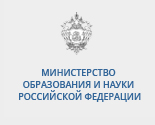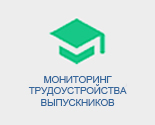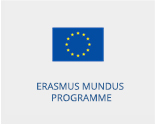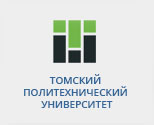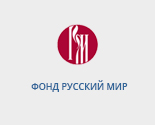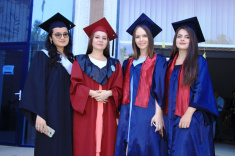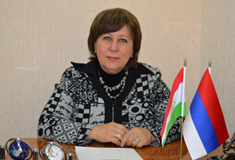Вестник РТСУ
Адамкулова Ч.У. Национальные рейтинги вузов как направление совершенствования системы обеспечения качества высшего образования в Кыргызской Республике
УДК 338.24.021.8:378(575.2)
НАЦИОНАЛЬНЫЕ РЕЙТИНГИ ВУЗОВ КАК НАПРАВЛЕНИЕ
СОВЕРШЕНСТВОВАНИЯ СИСТЕМЫ ОБЕСПЕЧЕНИЯ КАЧЕСТВА
ВЫСШЕГО ОБРАЗОВАНИЯ В КЫРГЫЗСКОЙ РЕСПУБЛИКЕ
Адамкулова Чинара Усенбековна
Кандидат экономических наук,
профессор кафедры экономики и управления
кыргызско-европейского факультета экономики и управления
Кыргызский национальный университет
Ул. Фрунзе 547, 720033, Бишкек, Кыргызская Республика
В статье раскрывается состояние системы высшего образования в Кыргызской Республике на современном этапе. Обоснована необходимость использования рейтингов вузов как одного из направлений повышения качества системы высшего образования. Предложен комплекс индикаторов для составления национального рейтинга ВУЗов.
Ключевые слова: Кыргызская Республика; высшее профессиональное образование; ВУЗы; модернизация; Болонский процесс; рейтинги ВУЗов.
Литература
1. Болонский процесс: Концептуально-методологические проблемы качества высшего образования (книга – приложение 3) / под науч. ред. д-ра пед наук, проф. В.И.Байденко. – М.: Исследовательский центр проблем качества подготовки специалистов, 2009. – 304 с.
2. Кинчарова А. В. Мировые рейтинги университетов: методология, эффекты и критика. Препринт. –Томск, 2013. – 49 с.
3. Кинчарова А.В. Методология мировых рейтингов университетов: анализ и критика // Университетское управление: практика и анализ. – 2014. – №2(90). –С.70-80.
4. Кожевникова Н.Ю. Влияние болонского процесса на преобразование учебных бизнес-процессов и распределение ресурсов вуза // Известия Волгоградского государственного технического университета. – 2010. – Т.9. – №11(71). –С.98-102.
5. Методологические подходы составления рейтинга вузов СНГ. [Электронный ресурс] // Рейтинговое агентство «Эксперт РА». – Режим доступа: http://raexpert.ru/rankings/vuz/vuz_sng/part3/
6. Национальный рейтинг университетов. Рейтинг вузов стран СНГ, Грузии, Латвии, Литвы и Эстонии 2013 г. [Электронный ресурс]. – Режим доступа: http://univer-rating.ru/httproot/files/raitsnggll2013rus.pdf
7. Образование и наука в Кыргызской Республике, 2006-2010 Статистический сборник. – Бишкек, 2012.
8. Образование и наука в Кыргызской Республике, 2009-2013 Статистический сборник. – Бишкек, 2014.
9. Основные тенденции развития высшего образования: глобальные и болонские измерения / под науч. ред. д-ра пед. наук, проф. В.И.Байденко. – М.: Исследовательский центр проблем качества подготовки специалистов, 2010. – 352с.
10. Пьянова О.А. Сущность болонского процесса в европейском образовательном пространстве и причины присоединения России к этому процессу // Инновационное образование и экономика. – 2009. – Т.1. – №4. С.22-24.
11. Разумкова Г.М. Болонский процесс-процесс, сближения и гармонизации систем образования стран Европы // Образование: традиции и инновации: Матер. V междунар.науч.-практ. конф. / отв. ред. Н.В.Уварина. 2014. – С. 381-383.
12. Рейтинг вузов и специальностей в Кыргызстане. [Электронный ресурс]. – Режим доступа: http://obrazovanie.kg/stati/ucheba/rejting_vuzov_i_specialnostej_v_kirgizstane
13. Рейтинг вузов Содружества Независимых Государств. [Электронный ресурс] // Рейтинговое агентство «Эксперт РА». – Режим доступа: http://raexpert.ru/rankings/vuz/vuz_sng/part2/
14. Amsler Sarah S., Chris Bolsmann. University ranking as social exclusion. British journal of sociology of education 33.2 (2012): 283-301.
15. ARES-2014: Kazakhstan. Academic Ranking of World Universities-European Standard ARES-2014. [Электронный ресурс]. – Режим доступа: http://euchamb.com/?page_id=383
16. ARES-2014: Kyrgyzstan. Academic Ranking of World Universities-European Standard ARES-2014. [Electronic resource]. – Access mode: http://euchamb.com/?page_id=422
17. ARES-2014: Russian Federation. Academic Ranking of World Universities-European Standard ARES-2014. [Electronic resource]. – Access mode: http://euchamb.com/?page_id=344
18. ARES-2014: Ukraine. Academic Ranking of World Universities-European Standard ARES-2014. [Electronicre source]. – Access mode: http://euchamb.com/?page_id=369
19. De Maret, Pierre. "Universities in the world: What for." The world class university and ranking: Aiming beyond status (2007): 31-38.; Bird, Sheila M., et al. "Performance indicators: good, bad, and ugly." Journal of the Royal Statistical Society: Series A (Statistics in Society) 168.1 (2005): 1-27.
20. Hazelkorn, Ellen. "Learning to live with league tables and ranking: The experience of institutional leaders." Higher Education Policy 21.2 (2008): 193-215.
21. QS Topuniversities. [Electronic resource]. – Access mode: http://www.topuniversities.com/university-rankings
22. Rounsaville Cheryl. Review of "The world-class university and ranking: Aiming beyond status" подред. JanSadlak и NianCaiLiu . [Electronic resource]. – Access mode: http://www.nottingham.ac.uk/shared/shared_uccer/unesco-pdfs/The_World-Class_Uni_and_Ranking_-_book_review_by_Eleanor_Brown.pdf
23. Salmi Jamil, Alenoush Saroyan. League tables as policy instruments: Uses and misuses. Higher Education Management and Policy19.2 (2007): 31-68.
24. The Academic Ranking of World Universities (ARWU). [Electronic resource]. – Access mode: http://www.shanghairanking.com
25. The Times Higher Education World University Rankings. [Electronic resource]. – Access mode: https://www.timeshighereducation.com/world-university-rankings
NATIONAL RATINGS OF HIGH SCHOOLS AS A DIRECTION OF
IMPROVEMENT OF THE QUALITY ASSURANCE SYSTEM
OF HIGHER EDUCATION IN THE KYRGYZ REPUBLIC
Adamkulova Chinara Usenbekovna
Candidate of economic sciences,
professor of chair of economics and management
kyrgyz-european faculty of economics and management
Kyrgyz national university
Frunze 547, 720033, Bishkek, Kyrgyz Republic
The article deals with the peculiarities of the state of the system of higher education in the Kyrgyz Republic at the present stage. The need of using the ratings of higher educational institutions as one of the directions to improve the system of the higher education is proved. A set of indicators is proposed to compile a national rating of universities.
Key words: Kyrgyz Republic; higher professional education; universities; modernization; the Bologna process; ratings of universities.
References
1. Bologna process: Conceptual and methodological problems of the quality of higher education (book – appendix 3) / under scientific. ed. of Dr. of ped. sciences, prof. V.I.Baydenko. – M.: Research Center for Quality Problems in Training of Specialists, 2009. – 304 p.
2. Kincharova A.V. World university ratings: methodology, effects and criticism. Preprint. –Tomsk, 2013. – 49 p.
3. Kincharova A.V. Methodology of world university ratings: analysis and criticism // University management: practice and analysis. – 2014. – №2(90). –P.70-80.
4. Kozhevnikova N.Yu. The Influence of the Bologna process on the transformation of educational business processes and the distribution of university resources // Bulletin of Volgograd state technical university. – 2010. – V.9. – №11(71). –P.98-102.
5. Methodological approaches to compiling the ranking of the universities of the CIS. [Electronic resource] // Rating agency "Expert RA". – Access mode: http://raexpert.ru/rankings/vuz/vuz_sng/part3/
6. National rating of universities. Rating of universities in CIS, Georgia, Latvia, Lithuania and Estonia 2013 [Electronic resource]. – Access mode: http://univer-rating.ru/httproot/files/raitsnggll2013rus.pdf
7. Education and science in the Kyrgyz Republic, 2006-2010 Statistical collection. – Bishkek, 2012.
8. Education and science in the Kyrgyz Republic, 2009-2013 Statistical collection. – Bishkek, 2014.
9. The main trends in the development of higher education: global and Bologna dimensions / under scientific. ed. of Dr. of pedagogy, prof. V.I. Baydenko. – M.: Research Center for Quality Problems in Training of Specialists, 2010. – 352 p.
10. Pyanova O.A. The essence of the Bologna process in the European educational field and the reasons for Russia's accession to this process // Innovative education and economics. – 2009. – V.1. – №4. – P.22-24.
11. Razumkov G.M. Bologna process of convergence and harmonization of education systems in Europe // Education: traditions and innovations: mater. of the V international scientific-practical. conf. / ch.-ed. N.V.Uvarina. – 2014. – P. 381-383.
12. Rating of universities and specialties in Kyrgyzstan. [Electronic resource]. – Access mode: http://obrazovanie.kg/stati/ucheba/rejting_vuzov_i_specialnostej_v_kirgizstane
13. Rating of universities of the Commonwealth of Independent States. [Electronic resource] // Rating agency "Expert RA". – Access mode: http://raexpert.ru/rankings/vuz/vuz_sng/part2/
14. Amsler Sarah S., Chris Bolsmann. University ranking as social exclusion. British journal of sociology of education 33.2 (2012): 283-301.
15. ARES-2014: Kazakhstan. Academic Ranking of World Universities-European Standard ARES-2014. [Электронный ресурс]. – Режим доступа: http://euchamb.com/?page_id=383
16. ARES-2014: Kyrgyzstan. Academic Ranking of World Universities-European Standard ARES-2014. [Electronic resource]. – Access mode: http://euchamb.com/?page_id=422
17. ARES-2014: Russian Federation. Academic Ranking of World Universities-European Standard ARES-2014. [Electronic resource]. – Access mode: http://euchamb.com/?page_id=344
18. ARES-2014: Ukraine. Academic Ranking of World Universities-European Standard ARES-2014. [Electronicre source]. – Access mode: http://euchamb.com/?page_id=369
19. De Maret, Pierre. "Universities in the world: What for." The world class university and ranking: Aiming beyond status (2007): 31-38.; Bird, Sheila M., et al. "Performance indicators: good, bad, and ugly." Journal of the Royal Statistical Society: Series A (Statistics in Society) 168.1 (2005): 1-27.
20. Hazelkorn, Ellen. "Learning to live with league tables and ranking: The experience of institutional leaders." Higher Education Policy 21.2 (2008): 193-215.
21. QS Topuniversities. [Electronic resource]. – Access mode: http://www.topuniversities.com/university-rankings
22. Rounsaville Cheryl. Review of "The world-class university and ranking: Aiming beyond status" подред. JanSadlak и NianCaiLiu. [Electronic resource]. – Access mode: http://www.nottingham.ac.uk/shared/shared_uccer/unesco-pdfs/The_World-Class_Uni_and_Ranking_-_book_review_by_Eleanor_Brown.pdf
23. Salmi Jamil, Alenoush Saroyan. League tables as policy instruments: Uses and misuses. Higher Education Management and Policy19.2 (2007): 31-68.
24. The Academic Ranking of World Universities (ARWU). [Electronic resource]. – Access mode: http://www.shanghairanking.com
25. The Times Higher Education World University Rankings. [Electronic resource]. – Access mode: https://www.timeshighereducation.com/world-university-rankings
- Admission
- Undergraduates
-
Univercity
-
Сведения об образовательной организации
- Основные сведения
- Структура и органы управления образовательной организацией
- Документы
- Образование
- Образовательные стандарты
- Руководство. Педагогический (научно-педагогический) состав
- Материально-техническое обеспечение и оснащенность образовательного процесса
- Стипендии и иные виды материальной поддержки
- Платные образовательные услуги
- Международное сотрудничество
- Финансово-хозяйственная деятельность
- Доступная среда
- Канцелярия РТСУ
- Прочие сведения
- Ректор
- Программа развития университета
- Профсоюз
- Библиотека
- Институты
-
Центры
- Русский центр «Русский мир»
- Центр культуры
- Радиолаборатория РТСУ
- Учебная ТВ-студия РТСУ
- Центр таджикского языка
- Центр тестирования по русскому языку
- Ресурсный центр по туризму
- Центр геополитических исследований
- Междисциплинарный центр региональных исследований
- Информационно-ресурсный центр ООН в РТ
- Центр обучения 1С-бухгалтерии
- Информационный центр РТСУ
- Центр русского языка и культуры
- НИЦ по противодействию терроризма и экстремизма
- ТЕХНОПАРК РТСУ
- Школа РТСУ
- СМИ о РТСУ
- РТСУ в цифрах и фактах
- РТСУ в формате фотообъектива
- Полезные закачки
-
Сведения об образовательной организации
-
Faculties of RTSU
- Faculty of Economics
- Faculty of History and International relations
- Faculty of Law
- Faculty of Management and Information Technologies
- Faculty of Philology
-
Scientific work
- Научные направления университета
- Научно-исследовательские проекты
- Публикационная активность
- Публикация преподователей РТСУ за рубежом
- The University Bulletin
- Диссертационные советы
- Аспирантура
- Молодые ученые
- Научно-исследовательская работа студентов
- Координация программ, проектов и грантов в области образования и науки
- International activities
- Educational work
- More

